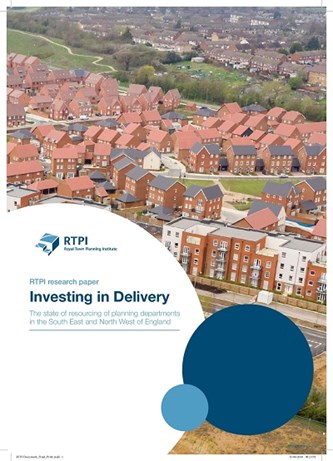 Following an earlier 2015 study, this 2018 research considers the level of investment in public sector planning services in two English regions and how this relates to performance and delivery. The research combines an extensive literature review with analysis of CIPFA data on resourcing, and interviews and focus groups with local authority officers. It highlights the funding pressures on local planning authorities, but also the innovative ways in which they have responded to them.
Following an earlier 2015 study, this 2018 research considers the level of investment in public sector planning services in two English regions and how this relates to performance and delivery. The research combines an extensive literature review with analysis of CIPFA data on resourcing, and interviews and focus groups with local authority officers. It highlights the funding pressures on local planning authorities, but also the innovative ways in which they have responded to them.
It also considers how the 20% increase in planning fees offered by central Government were being allocated to improve service delivery. The study makes recommendations for best practice based on surveys and interviews with focus groups from local authorities who participated. The research was led by ARUP, and commissioned by RTPI South East and RTPI North West.
The summary can be read here. The full report to can be read here.
Key findings
- Good training is considered a main benefit of working for Local Planning Authorities, however opportunities for such training is being eroded by resource pressures.
- Income from Development Management Services is increasing but still falls short of covering the cost of planning applications.
- Resources are being diverted from placeshaping activities to core statutory functions.
- There is an absence of planners in top positions within local authorities.
- The 20% increase in planning fees will not entirely address resourcing challenges.
- Despite budget cuts, 87% of major planning applications are still being determined within 13 weeks.
- However, focus on speed as only performance measure curtails planners' ability to impact on quality of decision and negotiate positive outcomes.
Key Recommendations
- The head of planning should be a statutory position within Local Planning Authorities (LPAs).
- Planners should be at the top table within LPAs.
- LPAs should consider collaboration across departments and avoid silo-ing their planners.
- LPAs should invest in their planners by growing their own and taking advantage of apprenticeship schemes.
- LPAs should invest in digital management tools.
- Government should allow LPAs to encourage, empower and protect planning judgement and place making, avoiding 'post box' or target based. decision making.


